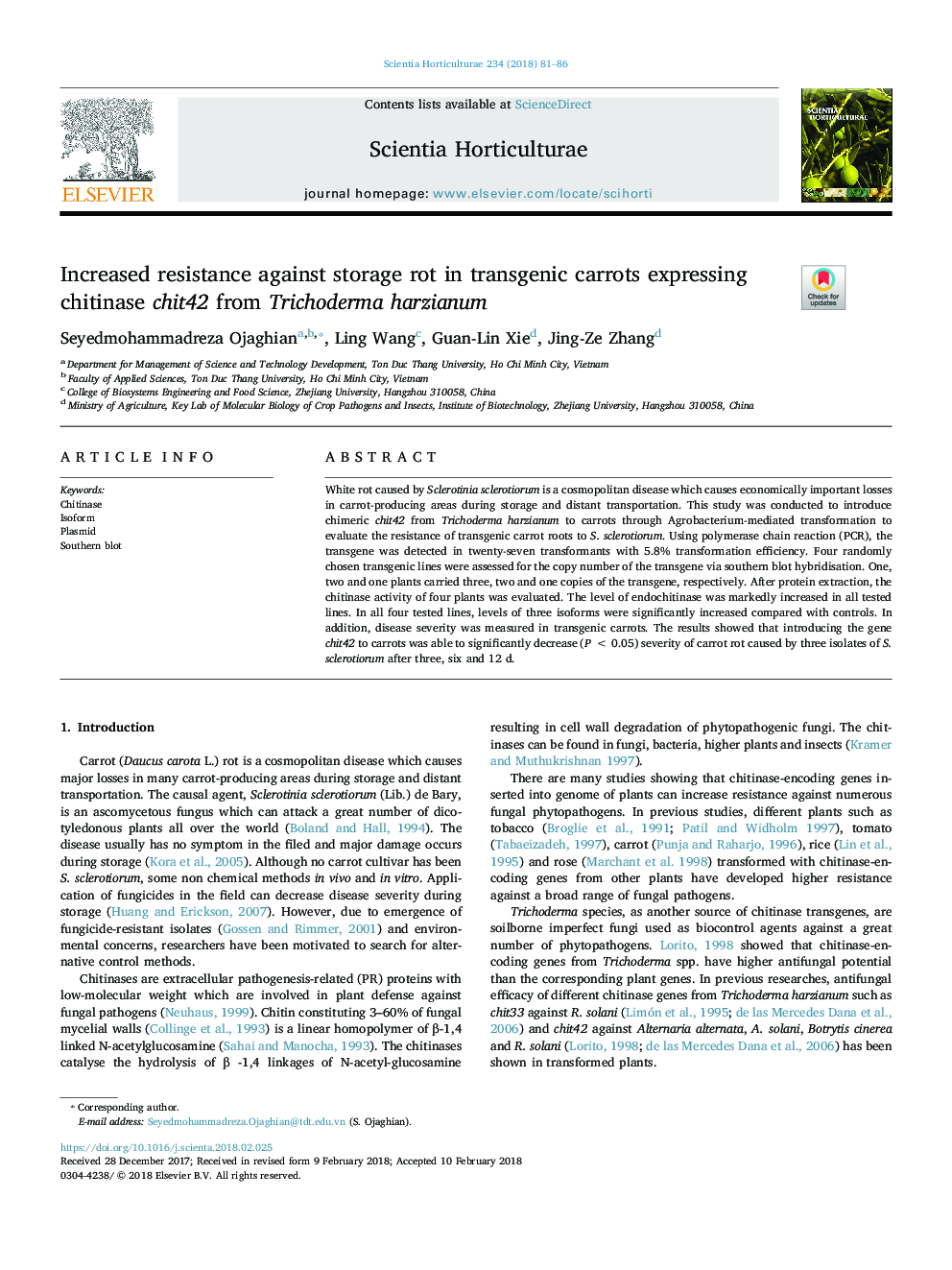| Article ID | Journal | Published Year | Pages | File Type |
|---|---|---|---|---|
| 8892744 | Scientia Horticulturae | 2018 | 6 Pages |
Abstract
White rot caused by Sclerotinia sclerotiorum is a cosmopolitan disease which causes economically important losses in carrot-producing areas during storage and distant transportation. This study was conducted to introduce chimeric chit42 from Trichoderma harzianum to carrots through Agrobacterium-mediated transformation to evaluate the resistance of transgenic carrot roots to S. sclerotiorum. Using polymerase chain reaction (PCR), the transgene was detected in twenty-seven transformants with 5.8% transformation efficiency. Four randomly chosen transgenic lines were assessed for the copy number of the transgene via southern blot hybridisation. One, two and one plants carried three, two and one copies of the transgene, respectively. After protein extraction, the chitinase activity of four plants was evaluated. The level of endochitinase was markedly increased in all tested lines. In all four tested lines, levels of three isoforms were significantly increased compared with controls. In addition, disease severity was measured in transgenic carrots. The results showed that introducing the gene chit42 to carrots was able to significantly decrease (Pâ¯<â¯0.05) severity of carrot rot caused by three isolates of S. sclerotiorum after three, six and 12 d.
Keywords
Related Topics
Life Sciences
Agricultural and Biological Sciences
Horticulture
Authors
Seyedmohammadreza Ojaghian, Ling Wang, Guan-Lin Xie, Jing-Ze Zhang,
